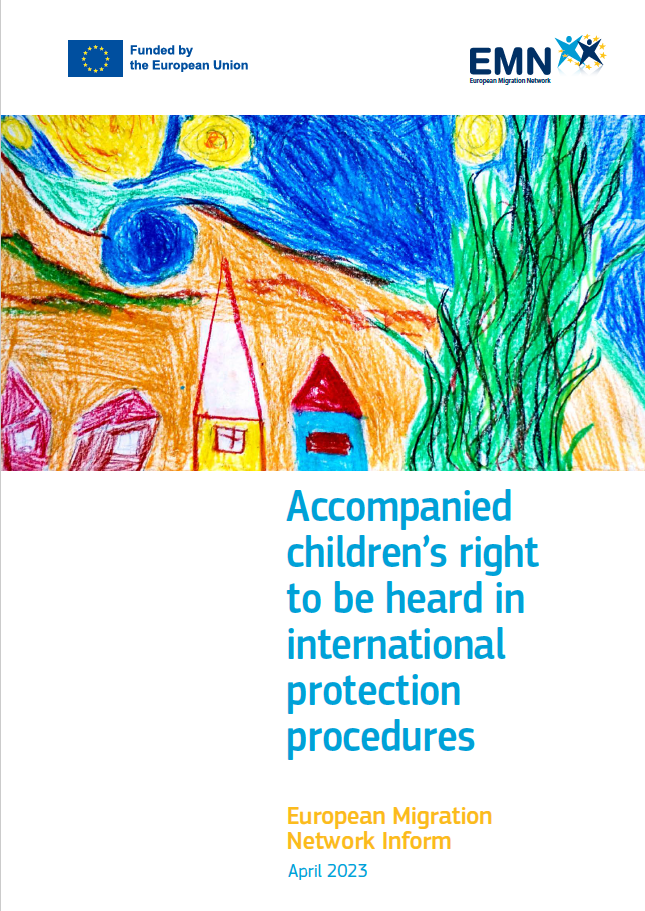In 2021, approximately 184,000 international protection applications were filed for minors, most of whom were accompanied children. Around 13% of these applications were for unaccompanied minors. Processing international protection applications for accompanied children can be particularly challenging, as there may be conflicting interests at play. In some cases, children may be reluctant to share certain information in front of their parents or responsible adults, or vice versa, parents may not want certain information to be disclosed by the child. This can be especially difficult in situations involving child abuse. It is therefore crucial that we gain a better understanding of when and how accompanied children are heard in international protection procedures, as well as the regulations surrounding these procedures.
The United Nations Convention on the Rights of the Child (CRC), Article 24 of the Charter of Fundamental Rights of the European Union (CFR), and the EU asylum acquis emphasise the importance of considering the best interests of the child in all decisions involving children, including international protection procedures. Their consent is vital and expressing their views should be voluntary.
EMN Member Countries and Norway have implemented diverse strategies to determine the appropriate timing and necessity of conducting personal interviews with accompanied children. The interviews are based on the discretion of competent authorities, such as case workers, or upon the explicit request of the child or their parents/responsible adults. This approach allows for a case-by-case determination of whether a personal interview is necessary, particularly in cases where it is deemed essential for safeguarding the child’s best interests or for the proper processing of the parents’/responsible adults’ application. In some EMN Member Countries, children are only interviewed in exceptional circumstances, while in others, accompanied children are automatically invited for an interview (except, for example, where this is manifestly unnecessary or against the best interests of the child).
This inform highlights some challenges that EMN Member Countries and Norway are facing in guaranteeing the right of accompanied children to express their views. The age limit requirements are a major obstacle for several of them. Other challenges include national requirements for consent from parents or responsible adults, and a lack of trained staff and resources. In response, good practices have been put forward to ensure that accompanied children’s rights are protected during the international protection procedure. These include training staff to hear children, conducting interviews in child-friendly facilities and language, allowing children to use different means to express their desire to be interviewed, and deciding on a case-by-case basis whether a child should be heard.


